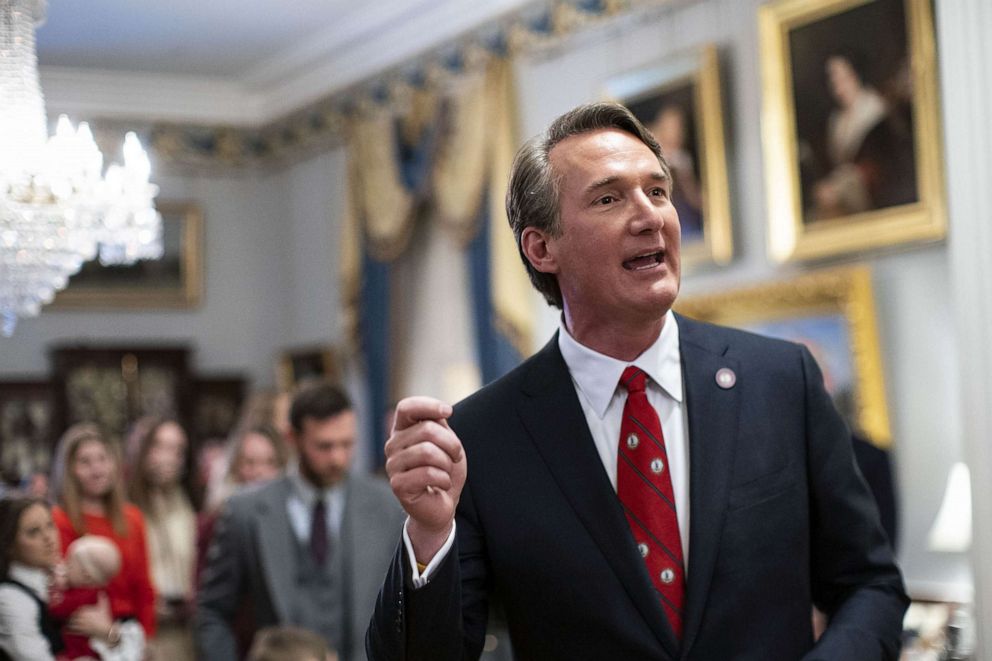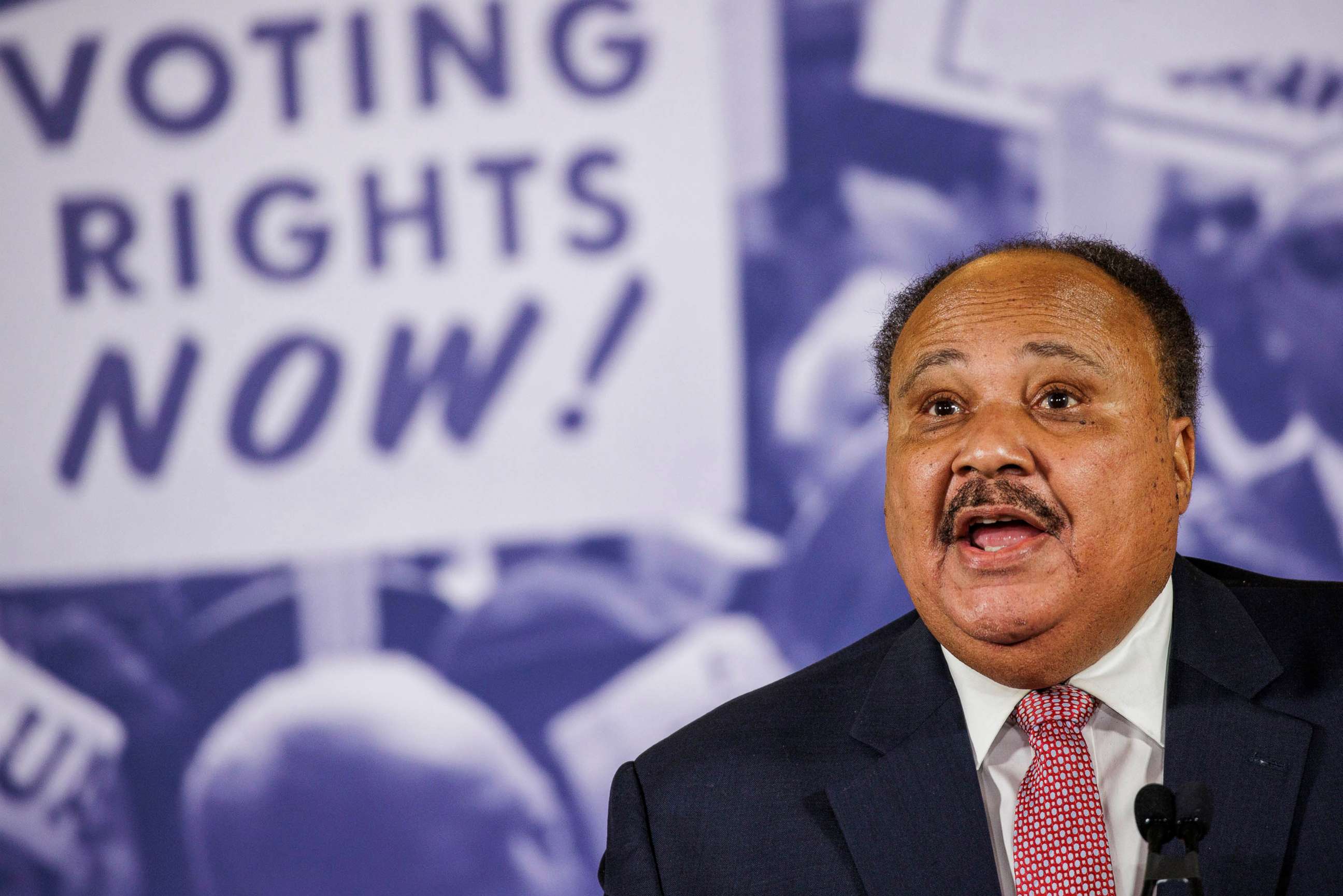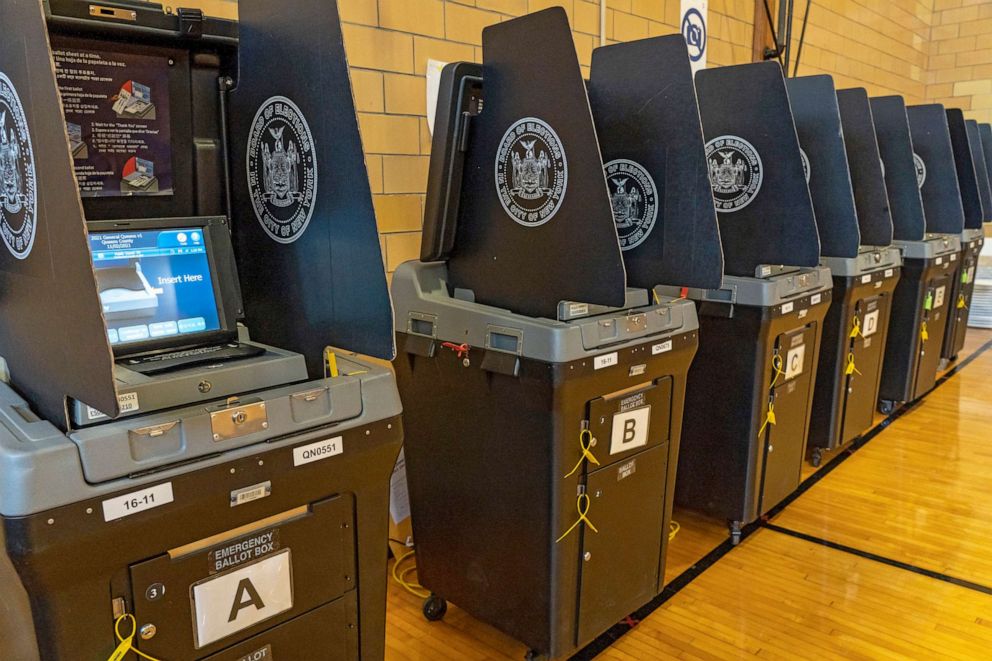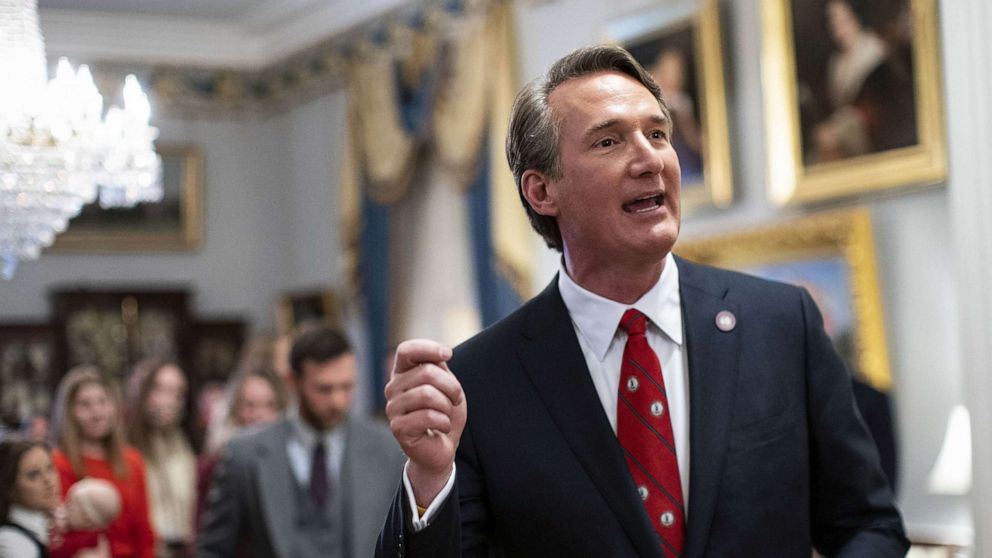GOP governors find new fronts in COVID-19 wars: The Note
The TAKE with Rick Klein
Florida Gov. Ron DeSantis went back in time to open up about the most significant public daylight between himself and former President Donald Trump, telling a podcast interviewer last week he wished he had been "much louder" in opposing early COVID-19 shutdowns.
The nation's newest Republican governor, meanwhile, is wasting no time in finding his own new front in the political battles over COVID-19.
Within hours of being sworn in on Saturday, Virginia Gov. Glenn Youngkin signed executive orders lifting the state's mask requirements. He specifically singled out schools by decreeing that, starting next week, no child would be required to wear one if a parent "has elected that he or she is not subject to a mask mandate."

That brought an immediate standoff with three school districts just outside Washington, D.C., that informed students and parents that their mandates remain. A parent of school-age children in one of those districts happens to be White House press secretary Jen Psaki, who tweeted thanks to Arlington officials "for standing up for our kids, teachers and administrators and their safety in the midst of a transmissible variant."
While the state's authority to override local school districts is unclear, Youngkin told reporters he's going to try to make sure his policies win out: "We will use every resource within the governor's authority to explore what we can do and will do to ensure parents' rights are protected."
Two years into the pandemic, it's telling that Youngkin and DeSantis are both charting territory that puts them on the side of both personal liberties and state authorities -- whether that means pushing back at government entities that are either national or local.
The RUNDOWN with Averi Harper
On the holiday honoring civil rights icon Martin Luther King Jr., the King family gave Sens. Joe Manchin, D-W.Va., and Kyrsten Sinema, D-Ariz., a tongue-lashing for their refusal to support a Senate rules change to make way for the passage of voting legislation.
"If Sen. Manchin and Sen. Sinema maintain their position, they will extend white supremacy's sharp chokehold on our democracy," Arndrea Waters King said.

"They think the real problem is a disease of division that can be cured with some optimism and conversation," Martin Luther King III said. "My father worked to bring people together in his time, but he was no Pollyanna."
The remarks came at the conclusion of a march led by the Kings in conjunction with more than 100 national and grassroots organizations. The family of Martin Luther King Jr. called for "no celebration without [voting rights] legislation," but it didn't stop the annual flood of statements from lawmakers cherry-picking pieces of the civil rights leader's legacy to honor.
Manchin issued a statement on the holiday calling Martin Luther King Jr. one of the "most inspiring and important figures in American history."
"Dr. King taught us to stand up for what we believe in through civil, peaceful means to unite our nation instead of divide it," Manchin said.
The Senate missed its MLK Day deadline to vote on a rules change, but the chamber is slated to take up voting legislation Tuesday. It's an effort widely expected to fail.
The TIP with Alisa Wiersema
In less than a month, Texans will be heading to polls to cast early, in-person ballots for the primary election for the first time following the implementation of S.B. 1, the new Republican-backed law that tightens the state's voting rules.
Ahead of that milestone, some voters -- such as those aged 65 and older -- are allowed to apply for mail ballots, but the new voting rules are already causing some hurdles for election administrators. According to a report from Austin ABC affiliate KVUE, nearly half of mail-in voting applications in Travis County, where Austin is the county seat, have been rejected due to issues with voter identification requirements put in place under the new law.

The new changes require that mail-in ballot applications include a voter's driver's license number or the last four digits of their Social Security number. The number listed is then verified in accordance with a person's voter registration record. If the information does not match, the application is rejected.
Voters choosing to cast mail ballots are facing the relatively tight deadline of Feb. 18 for when mail ballot applications need to be received by election administrators. Those administrators will likely need some time to process the applications before being able to send ballots to voters. Mail-in ballots must be received by March 1, the date of the Texas primary election.
THE PLAYLIST
ABC News' "Start Here" Podcast. Start Here begins Tuesday morning detailing what we know about the Tonga volcano with ABC's Matt Gutman. Then, ABC's Cheyenne Haslett breaks down the latest omicron surge details. And, Oxfam President Abby Maxman discusses the organization's report that the wealth of the world's 10 richest men doubled in the pandemic. http://apple.co/2HPocUL
WHAT YOU NEED TO KNOW TODAY
Download the ABC News app and select "The Note" as an item of interest to receive the day's sharpest political analysis.
The Note is a daily ABC News feature that highlights the day's top stories in politics. Please check back Wednesday for the latest.




